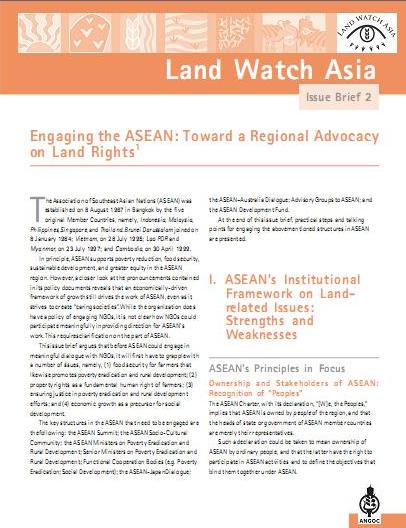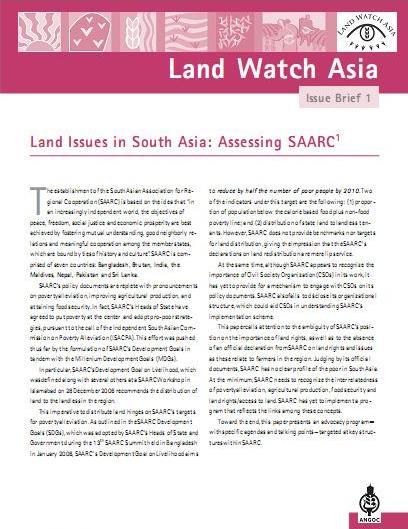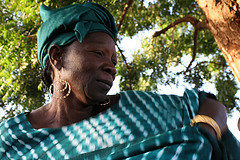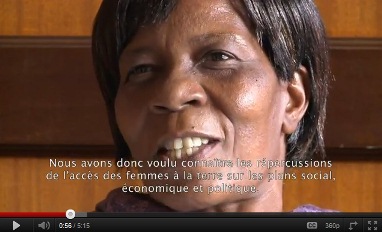Issue Brief 2: Engaging the ASEAN: Toward a Regional Advocacy on Land Rights
This issue brief argues that before ASEAN could engage in
meaningful dialogue with NGOs, it will first have to grapple with
a number of issues, namely, (1) food security for farmers that
likewise promotes poverty eradication and rural development; (2)
property rights as a fundamental human right of farmers; (3)
ensuring justice in poverty eradication and rural development
efforts; and (4) economic growth as a precursor for social
development.






